

Concrete blocks can be cleaned with a pressure washer or manually with muscle power. Everything you need to know about the topic can be found here.
What techniques are available?
Cleaning with a pressure washer
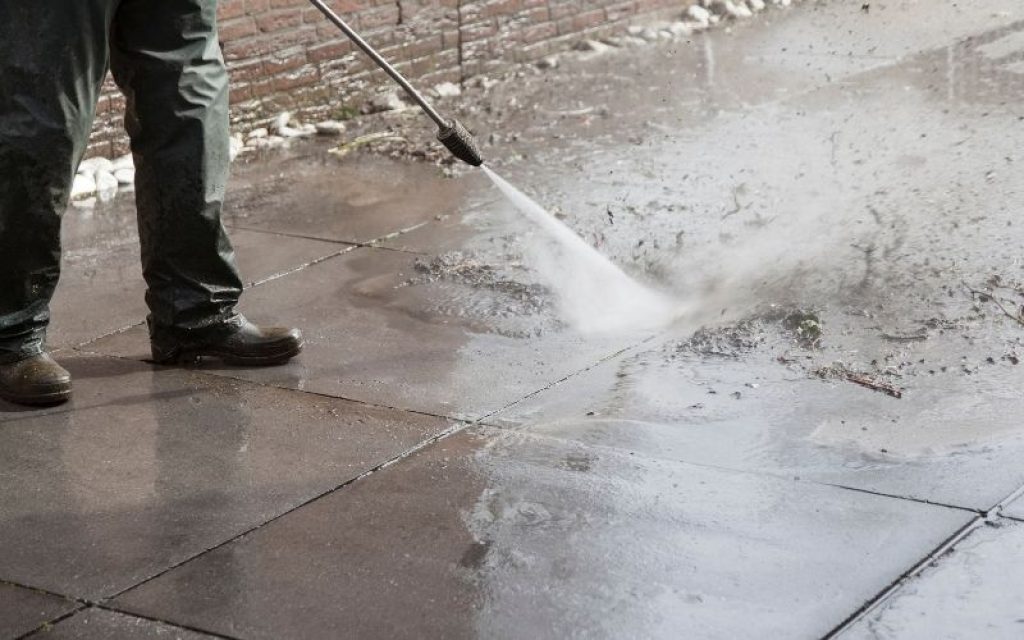
The most effective method for cleaning concrete blocks is a pressure washer. These devices can be purchased inexpensively at specialty stores, home improvement stores and online, and can often even be rented. High-pressure cleaners should be fitted with a suitable attachment that is suitable for concrete – think dirt grinders or surface cleaners, for example.
When working with the device, make sure that you keep a minimum distance of 20 cm from the ground. Otherwise, you run the risk of permanently damaging the concrete. Although high-pressure cleaners consume more water and electricity compared to the use of pure muscle power, it also provides the better cleaning result. In particular, heavy soiling is much easier to remove.
Video:
Cleaning without a pressure washer
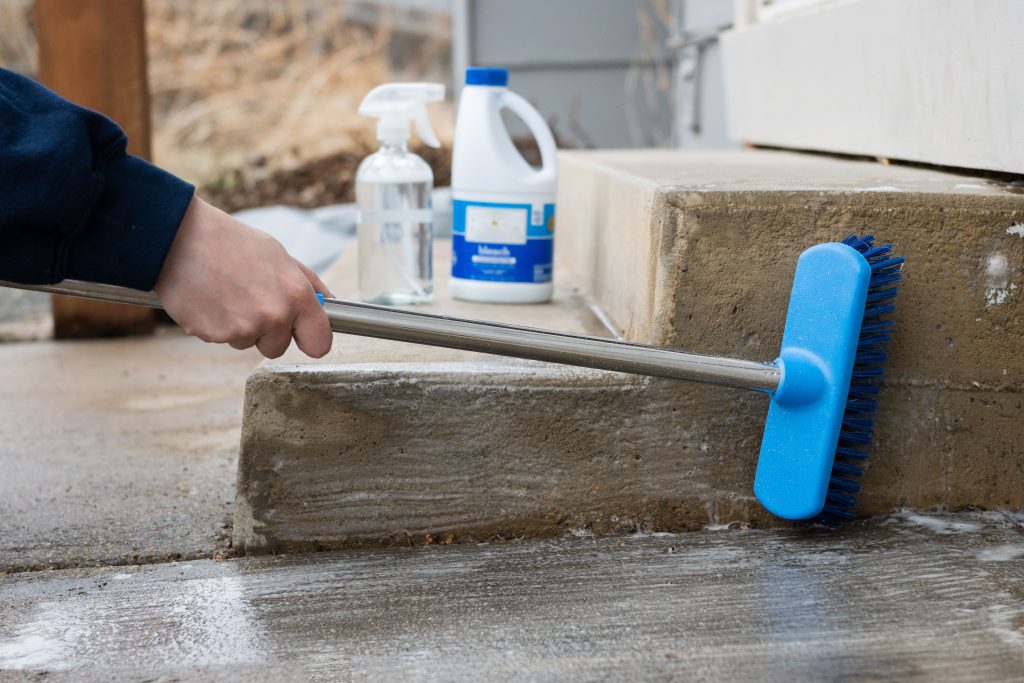
Alternatively, concrete paving stones can be scrubbed by hand, which involves minimal costs. All you need for this procedure is a suitable cleaning agent and a hard brush – and, of course, the right amount of muscle power. Both chemical variants and home remedies come into question as cleaning agents. Heavy soiling in particular should be pre-treated.
Cola, baking soda and washing-up liquid, for example, can be used for this purpose. Acidic household remedies (such as acetic acid or lemon juice), on the other hand, should not be used on concrete block, as they are unsuitable for the material. Dilute your mixture with water and let it soak for up to 6 hours to make scrubbing easier.
Video:
Product recommendations
Preparatory work
No matter which method you choose – in both cases, preparatory work is necessary, for which it is worth buying a grout scraper. This should be made of metal. Coarse impurities and oil and grease stains must be pre-treated. Special cleaning agents are offered for this purpose. When buying, make sure that it is suitable for concrete surfaces.
This joint scraper impresses with an extra-hardened blade that is particularly sturdy. This allows slab and stair joints to be freed from weeds and lichens practically effortlessly. The joint scraper is compatible with all of the manufacturer’s handles, so that the desired working height can be individually adjusted. The change takes place via a click system.
If there are oil or grease stains on your concrete blocks, they can be pre-treated with this special cleaner. The grease remover removes both synthetic and mineral oil from concrete, so it may be in demand when cleaning a driveway, for example. Oils and greases are absorbed and bound without attacking the material surface.
More on the topic: Cleaning patio slabs
Pressure washers and accessories
When buying a pressure washer, the price and cleaning performance are the most important factors. When choosing, make sure that a water pressure of at least 100 bar can be achieved and that it can be adjusted continuously. In addition, the pressure washer should have the highest possible water temperature, flow rate and power (in watts).
This high-pressure cleaner works with a powerful flow rate of up to 360 l/h, operating at a maximum pressure of 110 bar. The inlet temperature is specified at 40°C. The low weight of 3.8 kg makes the device mobile and easy to transport. In addition to the high-pressure cleaner, the scope of delivery includes a dirt cutter, a water filter and a 3-m hose.
This surface cleaner attachment can be combined to match the high-pressure cleaner. This allows the nozzle distance to the floor to be adjusted individually, so that simple and precise work can be ensured. The area output is about 60 m2 per hour. The attachment is suitable for a flow rate of up to 600 l/h and an inlet temperature of up to 60°C.
Sealing
To ensure that your concrete stones remain beautiful and clean for a long time after cleaning, you should apply an additional sealant. Special stone finishes are offered for concrete blocks that have dirt-repellent properties. Choose a product that is suitable for concrete and check the yield. The joints should be filled in this work step, for which joint sand, for example, comes into question.
Instructions: Cleaning concrete blocks with the pressure washer in 3 steps
Preparation
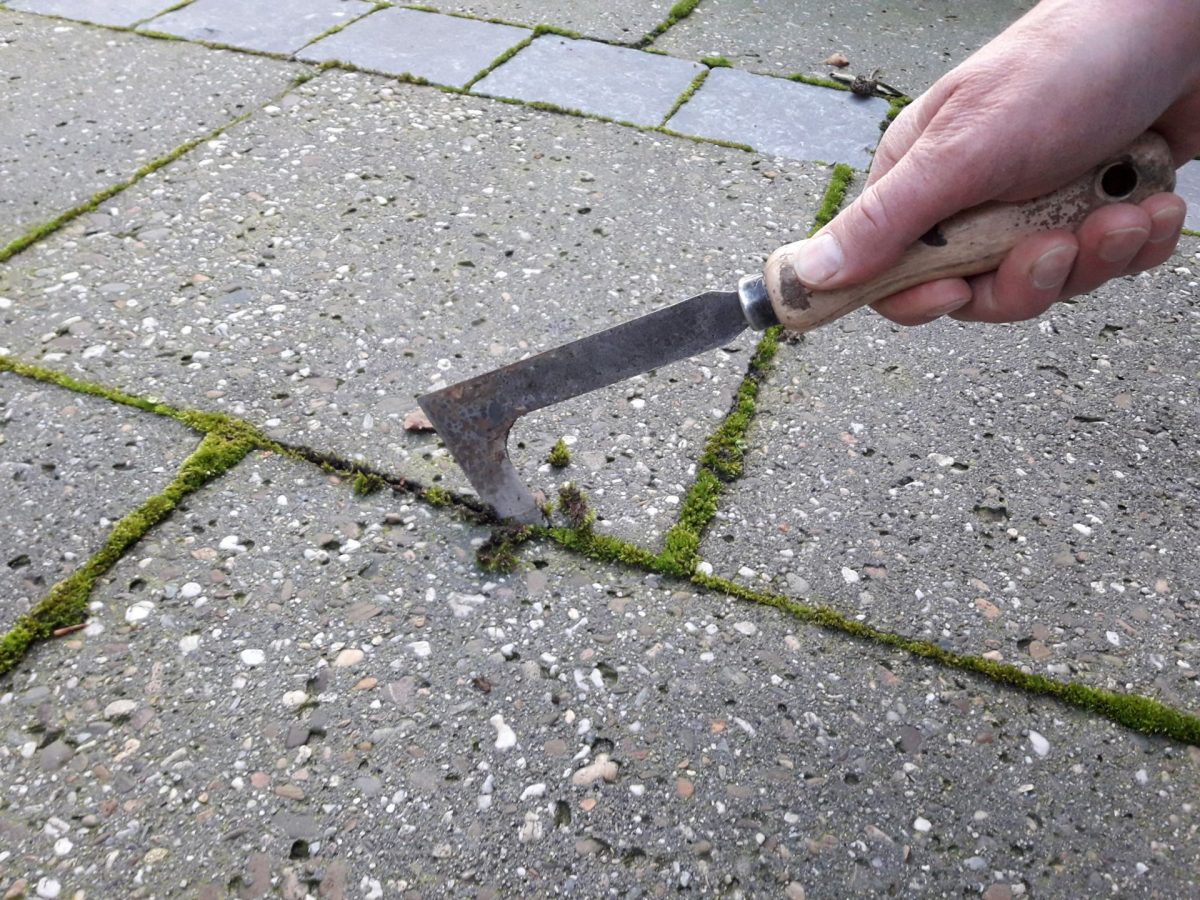
Before you can use the pressure washer, the concrete slabs must first be prepared for cleaning. Remove coarse dirt and free the joints from weeds, moss and lichen. Heavy soiling should also be pre-treated and tackled at this point.
Clean joints. Pick up a grout scraper or grout brush and clean the stone joints as a first step. This will help remove dirt and plant debris. If that’s too slow for you, you can alternatively reach for a weed burner. In both cases, it is elementary to get the roots – otherwise the plants will simply grow back.
Remove coarse dirt. Then tackle the coarse dirt by grabbing a broom and sweeping the entire area. This will keep sand, dust and leaves out of your way later. Existing dirt crusts are best loosened with scouring sand, which can be wiped over the material surface with a little pressure.
Use patio cleaner. For oil and grease stains (think, for example, of the driveway or the area around the barbecue), it is worth using a special grease cleaner. Follow the manufacturer’s instructions for proper use and optimal contact time. Cola, baking soda, dishwashing liquid and baking powder can also be suitable for stubborn stains on the concrete blocks.
Use high pressure cleaner
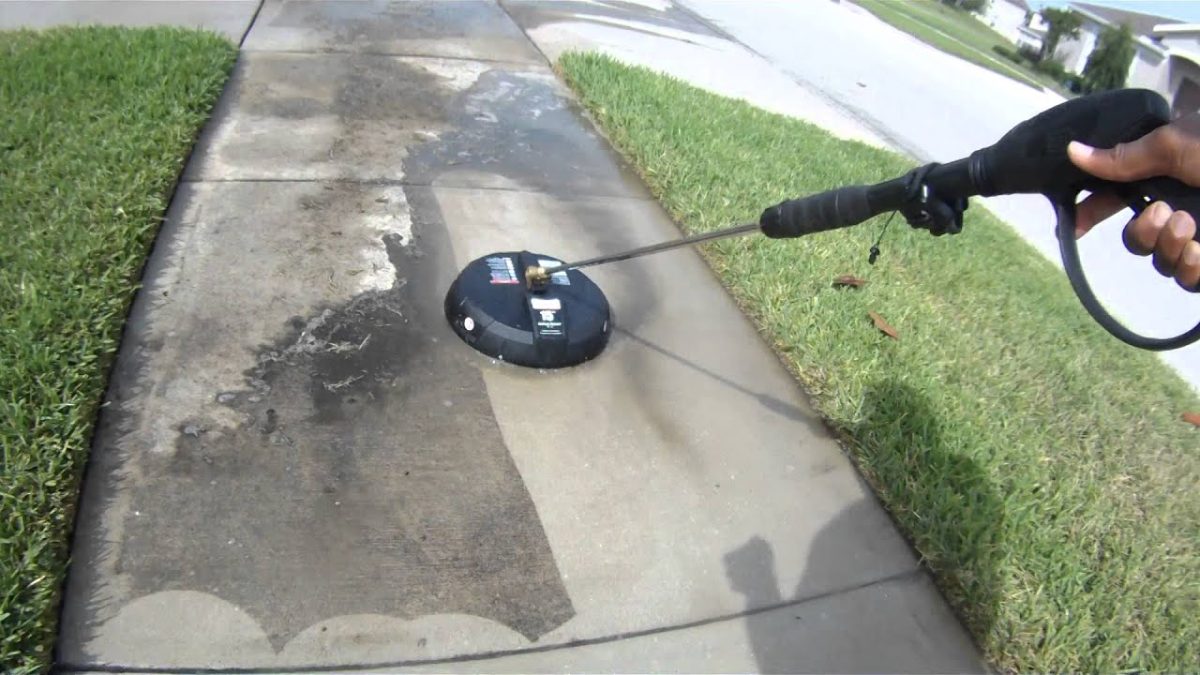
Subsequently, the high-pressure cleaner is already used. Take a look at the instruction manual to become familiar with the device and find the appropriate settings for concrete blocks – after all, cleaning should be as gentle as possible. Ideally, use environmentally friendly cleaning agents and do not direct the jet at overgrown areas in the garden.
Cleaning with a pressure washer. Start at one corner of the concrete area and work your way slowly with the pressure washer. Aim the jet at one row of stones at a time and proceed row by row. The distance to the ground should be at least 20 cm to avoid damaging the concrete. Stand with your back to the house to keep the house walls protected from splashing water.
Attachment vs. no attachment: although it is possible to clean your concrete blocks without an attachment, it is better to opt for one. A high-pressure washer attachment protects the stone surface because the water jet can be adjusted. At the same time, the swirling of stone particles from the joints is reduced. Good attachments are already available for small money.
Sealing
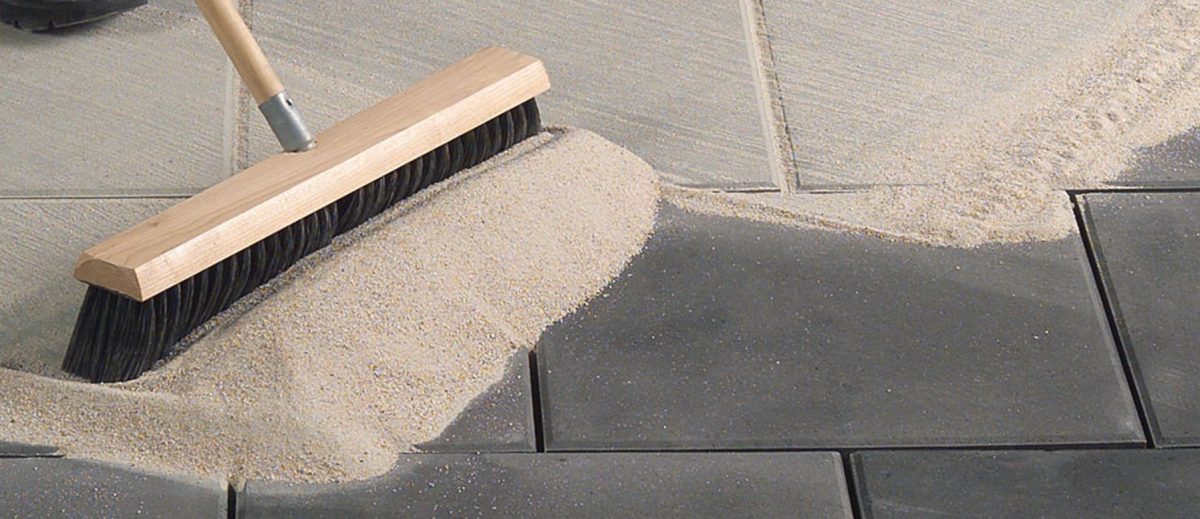
In a final step, the concrete blocks should be sealed. This creates a weatherproof impregnation that works like a protective layer – the surface stays beautiful longer, and dirt is also less likely to accumulate. Additionally, there are stone sealers that provide a different color or finish.
Apply stone finish and allow to dry. Apply the stone finish, following the manufacturer’s directions. Spread the product with a rubber squeegee and do not walk on the area for several hours afterward. This step should only be done if there is no rain forecast for 48 hours.
Use grit, sand or special jointing material. Several materials can be used to renew and seal the joints. Grout is particularly popular because it effectively suppresses weed and moss growth. However, this material is usually not environmentally friendly. Sand washes away quickly in the rain, but can absorb stresses between the concrete blocks. An alternative is also split, which drains moisture well.
Tools:
- Concrete cleaner or detergent
- Joint sand
- Sealer
- Water
- Scouring sand Possibly oil and grease remover
Materials: Joint scraper, High pressure cleaner, Attachment (suitable for concrete), Broom
Possible problems & solutions
Preparation problems. During preparation, chances are high that you will have to deal with stubborn dirt and oil or grease stains. Lichens are also very likely to infest concrete blocks. Put your muscles to work and scrub the area thoroughly with an appropriate cleaning agent to loosen the dirt particles from the concrete.
Problems when cleaning with a pressure washer. When working with a pressure washer, it’s easy to get spray on surrounding house walls. As a preventive measure, always align yourself with your back to the house. Also, make sure you are at least 20 cm away from the concrete floor so that the water jet does not damage the stones.
Problems with the choice of cleaning agent. When it comes to the cleaning agent, benefits and costs should always be weighed. While chemical agents may be more effective, they are not infrequently a burden on the environment and on animals as well as plants. For moderate soiling, they are mostly unnecessary. When using them, strictly adhere to the manufacturer’s instructions.
FAQ
What costs can be expected for professional cleaning and sealing of concrete blocks?
The cost of professional stone cleaning depends on many factors, which include the area, the degree of soiling, the amount of work involved and individual price determinations by the company. Calculate approximately 5 to 45 pounds per square meter.
How are stains sustainably removed from concrete blocks?
The procedure for removing stains from concrete depends on the type of stain. Efflorescence is treated with clear water, tile adhesive should be ground off. Suitable concrete cleaners are offered for most stains.
How can oil stains be removed from concrete?
Oil stains can be removed from concrete with a special grease and oil cleaner. When buying, make sure it is suitable for the material. Apply the special agent and pay attention to the manufacturer’s instructions regarding the exposure time.
How to clean concrete blocks properly?
Concrete blocks can be cleaned with a scrubber or with a pressure washer. Pre-treat the surface and scrape out the joints before applying a cleaning agent to the concrete blocks. Afterwards, apply a stone sealer and fill the joints.



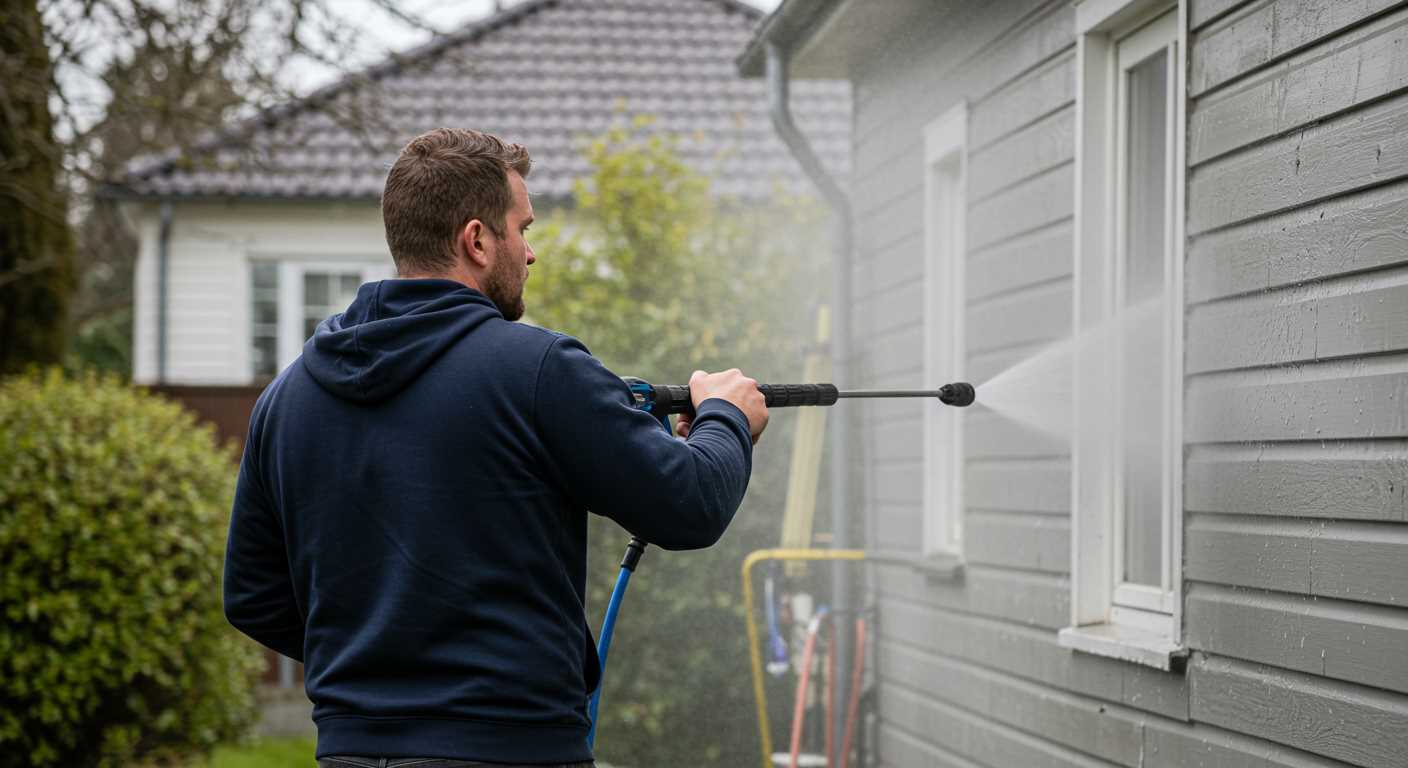
.jpg)


